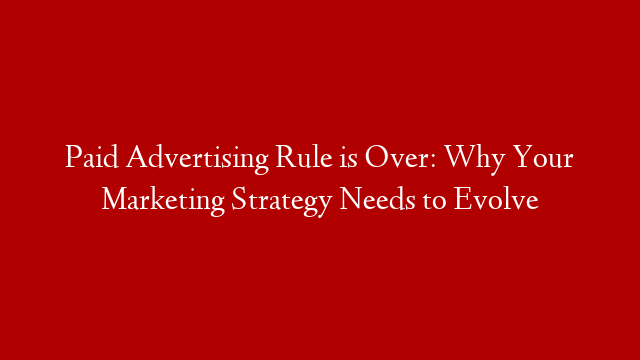If you’re like most people, you’ve been bombarded with online ads. You’ve seen them on websites, in your social media feeds, and maybe even on your favorite shows. And while you may not have realized it, those ads have been carefully crafted to persuade you to buy something, click on a link, or even change your opinion.
Yes, online advertising is designed to be persuasive. But how does it work? And why is it so effective?
In this article, we’ll take a look at the psychology of online advertising and how it can be used to influence your behavior. We’ll also explore some of the ethical concerns that have been raised about this type of marketing.
What is persuasive advertising?
Persuasive advertising is a form of marketing that aims to influence the behavior of its audience. It’s often used to sell products or services, but it can also be used to raise awareness about issues or promote a cause.
The key to persuasive advertising is understanding what motivates people and then using that knowledge to create an ad that will appeal to those motivations. For example, if you’re trying to sell a new car, you might create an ad that highlights the features of the car that are most important to buyers in your target market. Or if you’re raising awareness about the importance of recycling, you might create an ad that shows the negative environmental impacts of not recycling.
Motivations can be psychological or emotional in nature. They can also be practical, such as a desire for more money or a need for more information. Understanding what motivates your audience is critical to creating an effective persuasive ad.
Once you know what motivates your audience, you need to craft an ad that appeals to those motivations. This can be done in a number of ways, but some common techniques include using fear-based appeals, playing on desires for social approval or belongingness, and offering rewards for taking action.
It’s also important to make sure that your ad is believable and trustworthy. If people don’t believe what you’re saying, they’re not going to be persuaded by your arguments. To make sure your ad is believable, use credible sources and statistics whenever possible. You should also make sure that your ad looks professional and polished—no one wants to buy a product from an amateur-looking ad!
What are the ethical concerns with persuasive advertising?
While persuasive advertising can be effective, it’s not without its critics. Some people have raised ethical concerns about this type of marketing, arguing that it exploits people’s vulnerabilities and manipulate their emotions for commercial gain. Others have argued that persuasive ads are simply too effective—they’re so good at influencing people’s behavior that they can be used for harmful ends (such as convincing people to buy unhealthy products). Still others have raised concerns about the way persuasive ads are targeted—for example, ads for alcohol or fast food are often targeting children and young adults who are more likely to be influenced by them.123456789



